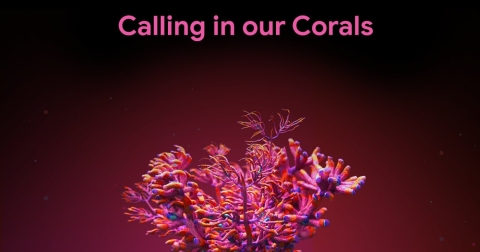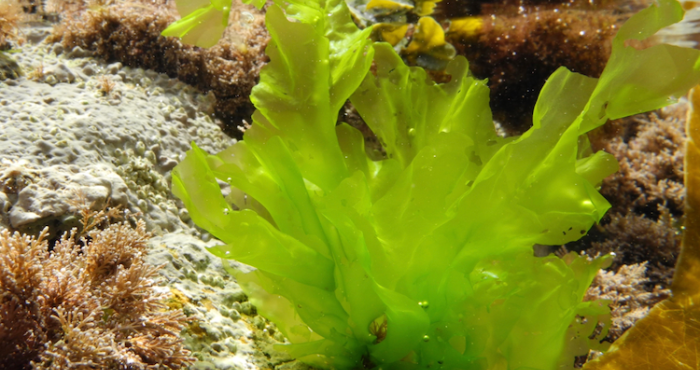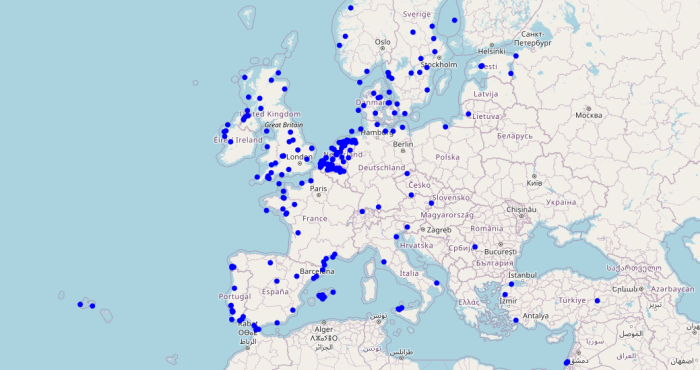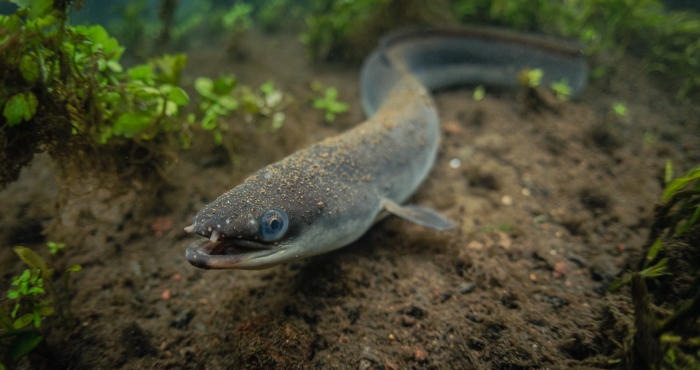Calling in our Corals: citizens helping to recognise underwater sounds
Anyone with 3 minutes time and an internet connection can assist coral researchers, and help to restore coral reefs around the world. Google Arts & Culture is launching the unique experiment 'Calling in our Corals', and you all can contribute!

Get trained by marine scientists Steve and Mary to learn to recognise the sounds of a coral reef, and then help them identify their numerous sound recordings. With better-trained artificial intelligence, this will allow them to better monitor the progress of coral reef recovery.
Marine scientists have hundreds of hours of sound recordings made in marine protected areas around the world. They want to use this to monitor the success of their recovery efforts. Yet ... they don't have enough time themselves to listen to all these recordings.
And this is where you can make a difference! In just three minutes of your time, you can help marine biologists at the University of Bristol (UK) process their bioacoustic sound recordings.
Listen to a healthy coral reef and compare it to the sounds of an unhealthy reef. Train your ear to recognise different popping, chirping, and crackling types. Click every time you think you hear the sound of a fish on 30-second snippets of sound recordings. With this Google experiment, travel virtually to different locations around the world and become a real citizen scientist! Together, you will collaborate on an important study to protect the ocean.
LifeWatch VLIZ researchers Clea Parcerisas and Elisabeth Debusschere contributed to this grand Google experiment by providing underwater sound recordings and results of their research (LifeWatch Broadband Acoustic Network dataset, 2021 - Flanders Marine Institute (VLIZ)).
Start the training here.
Marine scientists have hundreds of hours of sound recordings made in marine protected areas around the world. They want to use this to monitor the success of their recovery efforts. Yet ... they don't have enough time themselves to listen to all these recordings.
And this is where you can make a difference! In just three minutes of your time, you can help marine biologists at the University of Bristol (UK) process their bioacoustic sound recordings.
Listen to a healthy coral reef and compare it to the sounds of an unhealthy reef. Train your ear to recognise different popping, chirping, and crackling types. Click every time you think you hear the sound of a fish on 30-second snippets of sound recordings. With this Google experiment, travel virtually to different locations around the world and become a real citizen scientist! Together, you will collaborate on an important study to protect the ocean.
LifeWatch VLIZ researchers Clea Parcerisas and Elisabeth Debusschere contributed to this grand Google experiment by providing underwater sound recordings and results of their research (LifeWatch Broadband Acoustic Network dataset, 2021 - Flanders Marine Institute (VLIZ)).
Start the training here.



